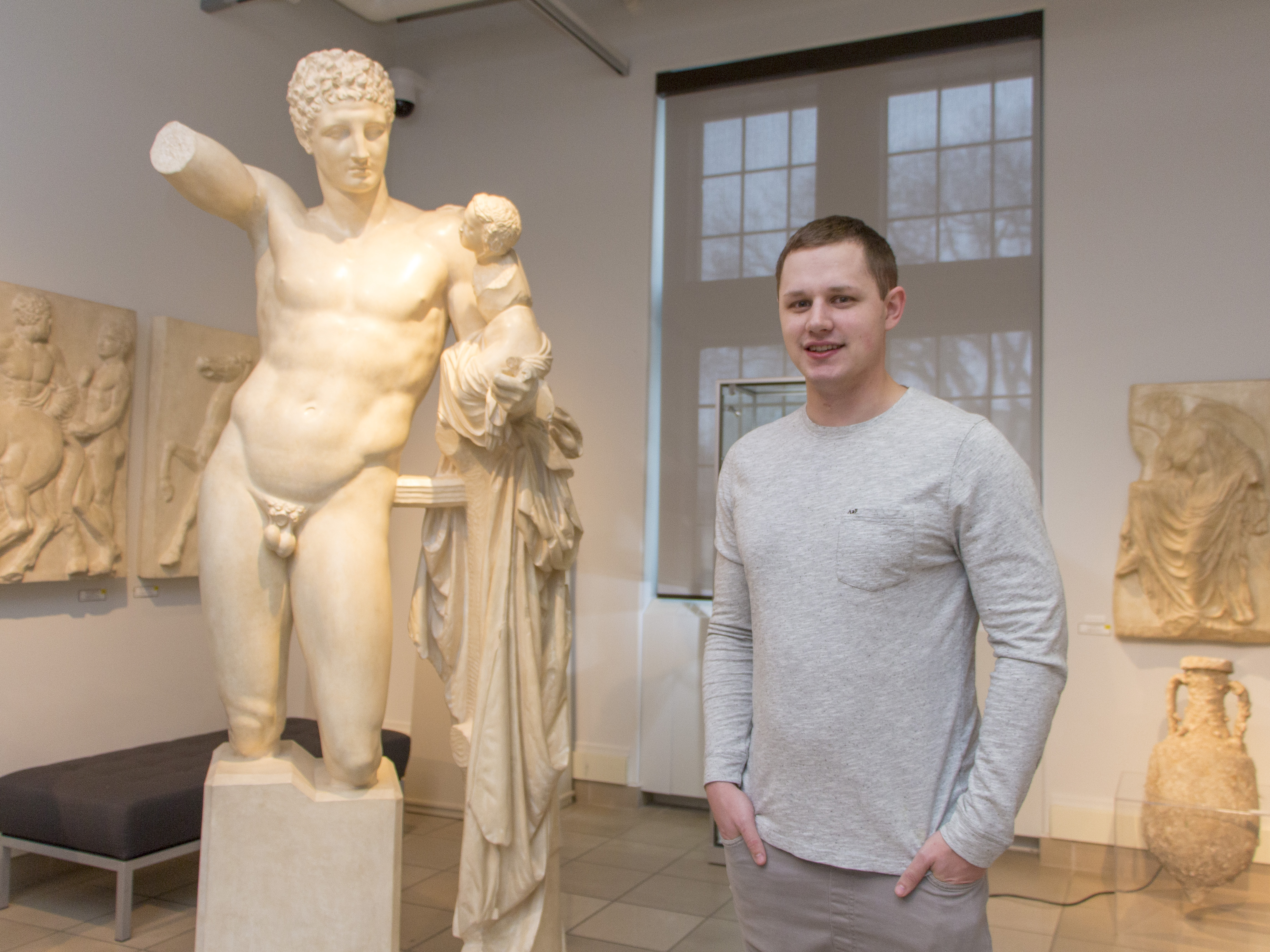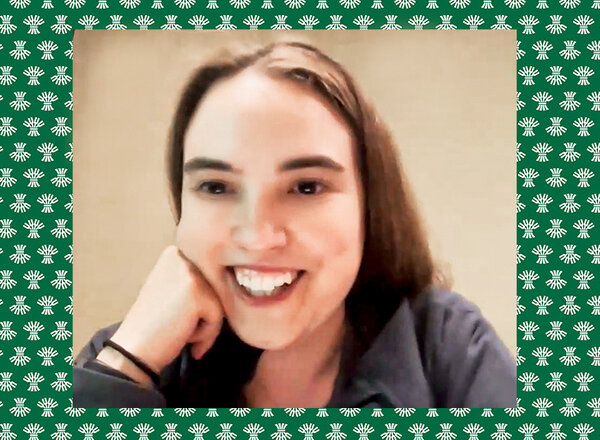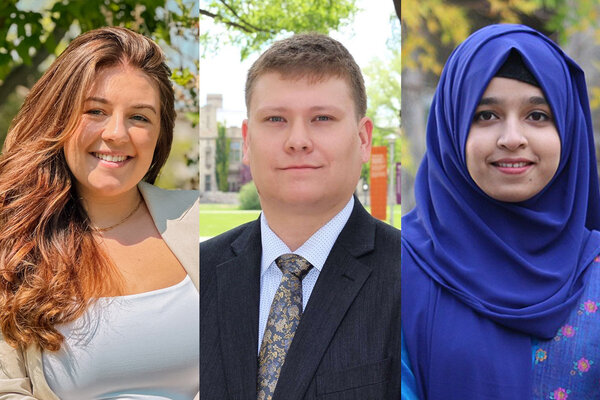
Annual fundraiser aims to help CMRS students attend medieval congress
International Congress on Medieval Studies to take place in Kalamazoo, Michigan, from May 9-12, 2019
By Shannon Boklaschuk
While pursuing his English degree through the University of Saskatchewan’s College of Arts and Science, Andrew Wiebe discovered a new passion: medieval studies.
Wiebe, who received his Bachelor of Arts degree in English (honours) at USask’s 2018 spring Convocation, is now working on another undergraduate degree in classical, Renaissance and medieval studies (CMRS).
“Studying Latin is just a lot of fun,” said Wiebe. “It rewards hard work, and that’s what I really enjoy. It’s something that you have to put in the work—and then you get to read fun things about other people who are long dead.”
CMRS at USask is administered by a committee of faculty, staff and student representatives from units across and beyond the College of Arts and Science and St. Thomas More College. The program examines the earlier cultures and foundations of what is commonly referred to today as the Western tradition.
Drawing on the resources of 12 departments in Arts and Science and St. Thomas More, CMRS offers an interdisciplinary approach to the study of a cultural tradition that ranges from the eastern Mediterranean in the 8th century BCE to 17-century Italy and the England of Shakespeare, Bacon and Hobbes.

Wiebe recommends that other Arts and Science students take CMRS courses whether or not they are planning to pursue a degree in the area.
“Even studying manuscripts—which is CMRS 333—and studying Latin, it helps you become a better researcher,” he said.
Wiebe is so passionate about CMRS that he is currently serving as the president of Comitatus, the CMRS student group at USask. He said one of its goals is to raise money to send USask students to the 54th International Congress on Medieval Studies, scheduled to take place from May 9-12, 2019, in Kalamazoo, Michigan. The annual gathering of about 3,000 scholars is hosted by the Medieval Institute at Western Michigan University.
“Going to Kalamazoo is a huge step for a lot of people,” said Wiebe, one of the eight USask students who attended the 53rd International Congress on Medieval Studies in May 2018.
“It’s the biggest one in North America. We go and we just drive for 24 hours to Chicago, stay there for the night and then go straight to Kalamazoo, Michigan.”
An annual concert night held at Amigos Cantina will help to raise funds to send the students to Kalamazoo. The upcoming concert, scheduled for Jan. 18, 2019, will feature The Wrong Johnsons, a band comprised of CMRS professors. This year’s opening band is the Lip Slackers, which is also made up of local academics who have been involved in CMRS coursework, including a poet, a historian and a physicist.
Tickets to the concert are $10 in advance, when purchased from a Comitatus member, or $15 at the door. The music will begin at 10 pm.
“Because CMRS bridges the various programs of English, history, philosophy and archaeology, events like this are central for a community that is scattered across campus,” said Wiebe. “This concert night has become a yearly tradition.”
Wiebe said attending the International Congress on Medieval Studies was a valuable experience for him. He plans to attend again in 2019.
“I think part of it is an ego boost. Seeing front-line scholars, you realize that you’re not that different from them,” he said. “And then also just getting to see what people are researching is really, really interesting.”


